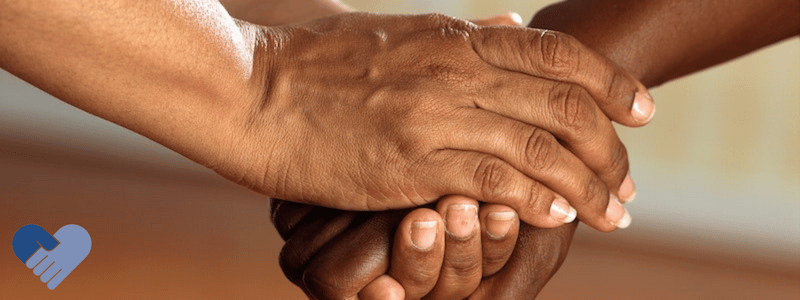Search by category, archive or keyword

If you are in a romantic relationship with an alcoholic or addict, it can be unnerving and overwhelming. The daily frustration of living with and loving an alcoholic or addict can leave you wondering if the relationship is worth saving or if it can be saved at all. All lives are worth saving, and that includes your own.
At some point, the person on the receiving end of the alcoholic or addict may come to realize nothing they say will make them stop. The only control someone has is the control they have over themselves and not others. Helping an alcoholic or addict is not about learning how to control them, it is about realizing that you can not.
When you become committed to helping your loved one, the most effective thing you can do first is take care of yourself. If you are committed to doing everything you can to help the alcoholic or addict and salvage your relationship, then you may benefit from an alcohol or addiction recovery program for spouses and families.
Taking the first step towards your own addiction recovery can greatly increase the chances you are able to save yourself and your relationship with an alcoholic or addict.
In this blog, we will cover the following:
- Is my spouse an alcoholic or addict?
- Alcoholic and addict relationship patterns
- Alcohol or addiction worsening your spouse’s mental health
- How many alcoholics or addicts have mental health issues?
- Seeking help in a relationship with an addict or alcoholic
Is My Spouse an Alcoholic or Addict?
Simply acknowledging that your partner has a problem is a huge part of any potential recovery. This may seem easy, and many find truly acknowledging the severity of the problem, and bringing to the surface emotions that have been building, is a heavier experience than they were expecting.

Likewise, the alcoholic or addict could largely benefit from acknowledging their problem and opening themselves to the change that will be needed in order to overcome alcohol and substance use disorders. As the spouse of an alcoholic or addict entering recovery, you may receive greater results when you help yourself before you attempt to help your loved one through this challenging time.
Putting Together a Plan for Family Alcohol or Addiction Recovery & Support
Prior to the start of the alcohol or addiction recovery process, it is suggested a plan be developed with a professional. The plan should consider boundaries and accountability for all parties involved in the recovery process.
Taking the difficult first step into recovery, asking for help, and putting together an alcohol or addiction rehabilitation plan with an alcohol interventionist often brings on the most fear because of the unknown.
Like most things in life, change brings about fear because we aren’t sure what to expect. Living in that fear and choosing the path of inaction will most likely produce negative results for you and your alcoholic or addicted spouse or partner.
Could there be underlying reasons preventing you from Taking the First Step?
An Interventionist Can Help Your Family identify roadblocks that may be preventing you from Seeking Help.
1 (888) 291-8514
Please read for more information on how to enact a plan and create healthier relationships.
Alcoholic and Addict Relationship Patterns
Identifying an alcohol or substance use disorder is only part of the equation in solving problems within a relationship affected by abusive alcohol consumption or other addictions. Many of the problems are a result of the substance user’s behaviors being compounded by their family or partner’s reactivity, codependency, and enabling.
Enabling is often identified by signs or characteristics. Some examples are:
- Providing money or other assistance they could otherwise address if not in active alcoholism or addiction.
- Ignoring or condoning problem behavior, especially in public settings.
- Making excuses or covering for their actions to avoid repercussions.
- Not addressing the issue of substance abuse and behaviors.
- Sacrificing personal freedoms which may encourage your partner to continue in their addiciton.
- Being dishonest to other family members and friends about how things are going with you and them.
- Engaging in behaviors that encourage alcoholism and addiction primarily to avoid confrontation with the alcohol user.
- Believing your methods and ideas of helping them are actually helping them.
The symptoms of being an enabler in an alcoholic or addict relationship can be unpleasant to read, especially if you recognize them happening in your own relationship. Identifying enabling behaviors is not meant to instill guilt or shame in the reader. With that being said, inaction does not improve the situation for the enabler or their loved one with alcohol and substance use disorders.
Taking the first step helps both parties acknowledge the problem and its symptoms and can start the healing process. The mental and physical health of both people in the relationship is at stake, and with surrender, determination, and commitment, recovery from alcohol and other addictions can offer a happier life for you and your spouse or partner.
Manipulative Behavior is a common behavior among those with alcohol and substance use disorders. For some, manipulation and dishonesty become normal routines. It is often said that the alcohol user or addict would be dishonest even if the truth were more beneficial.
Manipulations, flipping the script, blaming others as the cause of their problems, and dishonesty are exhausting behaviors that can take their toll on those who are on the receiving end. The alcohol user or addict’s behaviors can manifest in many ways, and some common forms include:
- Engaging in isolation and threatening self-harm when confronted with problems.
- Guilt-tripping you or family members to avoid blame.
- Being defensive when their substance abuse is brought up (teaching you overtime not to confront them).
- Asking for money and favors, and when you decline, you are blamed for their shortcomings and lack of resources.
- Preying on physical, emotional, or monetary fears.
- Claiming the victim’s role
These signs and actions are often slow-developing, and it may be difficult to notice them growing. If you are able to recognize these signs in your relationship, we encourage addressing them with professional help sooner than later. Helpful suggestions can come from intervention, support groups, counseling, and family therapy.
Alcohol or Addiction Worsening Your Spouse’s Mental Health
Mental health issues are of great concern when you add substance abuse to the mix. This includes both people in the relationship. The stress on those close to or in a relationship with an alcoholic or addict can be overwhelming.
Alcohol use, whether abused or not, can mask and worsen existing mental illness. When an alcohol or substance use disorder is present, it is often suggested to take into account the alcohol use before trying to make an accurate diagnosis of any possible mental health problems. Any and all diagnoses should be provided by a professional and not the alcohol user or addict or their family and friends.
How Many Alcoholics Have Mental Health Issues?
A significant percentage of individuals with an Alcohol Use Disorder [AUD] may also have a mental health issue (including depression, bipolar 1, bipolar 2, anxiety, and mood disorders). An even larger percentage of individuals with drug addiction (Substance Use Disorder [SUD] suffer from mental health concerns.
Inversely, there is approximately an equal amount of individuals with a mental health issue who also have a drug or alcohol abuse problem (SUD or AUD). The connection between alcohol, drugs, and mental health is clear.
Some mental health and mood disorders that can be brought on or worsened by excessive drinking for both parties can include:
Anxiety: Anxiety, often severe, is one of the main symptoms of alcohol or sunstance use disorder and addiction. One of the many reasons an alcohol user may drink is to relieve alcohol withdrawal. This is often done to deter acute anxiety and panic attacks brought on by a lack of alcohol.
The spouse of the alcoholic or addict may also suffer from anxiety, shared in the couple’s own problems and problems brought on by the alcohol use. It is not uncommon for an alcohol user to cause those close to them to become neurotic.
Depression: This is where isolation, restlessness, or ambivalence towards everyday activities can manifest. Many alcohol and substance use disorders clients experience depression and fall into a deep victim mentality. They may start to give up as problems compound and can start to believe there is no hope for them. They may even try to convince you they are doomed, and nothing can help them, and they are beyond repair.
Bipolar Disorder: Also described as manic-depressive illness. Bipolar is a mood disorder with manic episodes and experiences of depression at some point. Symptoms include grandiosity and increased self-esteem, less sleep, being very talkative, being easily distracted, and racing thoughts.
People with Bipolar one disorder can become over-involved and, at times, obsessive with pleasurable activities. This can cause problems such as infidelity and prioritizing certain things while forgetting other things that should be important such as children, marriage, work, etc.
Obsessive-Compulsive Disorder: An extremely common and specific anxiety disorder, 24 percent of people with OCD suffer from a substance abuse disorder. These compounding sets of habits distract from the intrusive thoughts commonly present in OCD.
Cyclothymia: This is a mood disorder less severe than those symptoms found with Bipolar disorder. The symptoms are volatile mood swings and are often worsened with the introduction of heavy alcohol use. This is a common disorder found in those suffering from alcohol and substance use disorders.
Mania: This is common in alcoholics and causes one to have delusions and bouts of hyperactivity. Manic episodes can cause one to be full of energy and talk aggressively in circles with exaggerated thoughts.

Narcissistic Personality Disorder: To put this disorder bluntly, it is a belief that causes one to be selfish, have a sense of entitlement, and feel as if they are the only thing that is important. They often feel as if they are the smartest person they know and are consumed with their appearance and how others view them while lacking empathy for others. It is grandiose behavior that allows them to believe they are better and smarter than everyone else.
Antisocial Personality Disorder: This disorder starts in childhood as a conduct disorder and is often present in alcohol and substance use disorder clients. Some of the symptoms are an open disregard for the truth, starting fights, and little to no empathy for others. Another symptom not always found in those with alcohol or substance use disorder, although common in ASPD, is cruelty to animals.
Mental illness can cause many symptoms and impairments. Substance use by way of drugs or alcohol can worsen these symptoms and impairments.
In cases of Dual Diagnosis in which a substance use disorder is present with a possible mental health disorder, it is clinically recommended to treat these symptoms and problems as the result of the substance use until the mental illness can be determined by a different cause.
Many mental health symptoms can be the result of substance use, and in some cases, substance use is used to treat mental health. In any case, an accurate diagnosis is difficult, if not impossible, while the substance user is actively using or is still in the infantile stage of recovery.
It is also not uncommon for untreated traumas to come out as behaviors that appear to be textbook mental illness symptoms. It is often these unresolved traumas and behaviors that cause one to seek out alcohol or drugs as a solution.
Families often find it easier to digest a mental illness diagnosis over an alcohol or substance use disorder diagnosis. It is not uncommon for behaviors that lead to alcohol and drug addiction to be present prior to the introduction of drugs or alcohol.
In other words, just because you can identify behaviors that started before the introduction of substances does not mean you are guaranteed mental health. There are traumas that cause one to act out in certain behaviors that can be addressed and rectified through counseling, therapy, and a substance use disorder treatment program.
Seeking Help in a Relationship with an Addict or Alcoholic
When looking to improve the quality of your life while in a current relationship with an alcoholic or addict, the most common thought is: Can I save or fix our relationship, and if so, how? These are large existential questions and thoughts.
It may be beneficial to first seek help for yourself and to explore reasons why you allow yourself to stay in the relationship if the alcohol or substance user is unwilling to seek help. There are great resources available to help you make your first decision and follow through with a plan.
Determining an appropriate level of care for your family and the alcoholic or addicted user: Once the alcohol or substance user decides to make some changes and seek help, it would be important to speak with a professional to determine what is the most appropriate course of action. This, too, goes for the family. While speaking with a professional interventionist, you can discuss your options to start your own recovery from the turmoil incurred during your loved one’s struggles, whether or not you intend to salvage the relationship.

Even in cases of bitter separations, both your situation and the alcohol and substance user can benefit from a treatment plan and increase your opportunities to function independently. A professional alcohol or substance use interventionist who performs an assessment can help you and your family determine the appropriate level of care for all parties involved.
Staging an Intervention: If your partner is unwilling to address their alcohol or substance use disorder, it may be time for you and other family members to take the first step. The old way of thinking that you need to wait for them to want help or hit their bottom is not only a myth, but it is also dangerous. It also suggests the family suffers through the addiction with them and robs them of any possibility of hope.
At Family First Intervention, we do believe the alcohol user would benefit from facing some setbacks and consequences as a precursor to seeing the need for change. We equally believe the family has the right and ability to take the first step to take care of their own needs. These changes initiated by the family often expedite the alcoholic’s or addict’s willingness to do something different.
Learning why you enable and how you may be preventing the alcohol user from seeing the need for change while preventing them from feeling consequences is a benefit received from staging an intervention.
Families tend to believe an intervention is about getting their loved one back, learning how to better control the situation, or just making them accept help and head off to treatment. Many are unaware of the roles families play that comfort the alcohol or substance user. Changing family behaviors can be very impactful and encourages changed behaviors on behalf of the alcohol or substance user and their overall recovery process.
In addition to enabling and codependency concerns, other concerns in a relationship with an alcoholic or addict, such as mental health issues, feelings of resentment, and many other underlying symptoms, are often discovered through the intervention process that would have otherwise been missed.
An intervention is not a 12-step call and is definitely not a speech delivered by the family member with the biggest ego. An intervention is an all-encompassing process that addresses family systems and their effect on the recovery process for both the family and the alcoholic or addict.
Plan for a Future After Alcoholism Treatment: The evidence suggests families who enter recovery with or without the alcohol or substance user make a positive impact on themselves and the user’s overall recovery efforts. When thinking of what happens next, the decisions made are far healthier and more effective for a family who has started the healing process for themselves versus families who do not.
Entering a recovery program is about surrendering to those who may have better ideas than you, your family, and the alcohol or substance user. Listening to those who can provide unbiased and unflooded suggestions outside of your own is often the best approach.
There is a saying in recovery that tells us recovery happens “One day at a time.” This is very true and an effective way to look at things.
Planning for a future after treatment is about growing and learning. The fewer expectations we set and the more we let the process unfold through professional guidance, the more positive and productive the outcome will be.
How to Help Someone Addicted to Alcohol
Family First Intervention understands the role a family system has in addiction. We focus on the family first in order to help both the family and the alcohol or drug user enter a recovery program to increase successful outcomes. In our experience, intervention is a pivotal point in addiction. It is often the first time the family did something different and were all in agreement on what to do.
Up until the intervention, it was this disagreement that left many in a state of perpetual hopelessness while addressing the situation independently by each family member. If you’re hoping for a better way of living for yourself and hoping for your loved one to recover from alcoholism successfully, starting with a professional intervention is an effective approach.

Interventions almost always happen in situations that require correction. Whether it happens by societal judgment or by family initiation, an intervention will often occur. The question a family only needs to ask themselves is, are we going to wait for “it” to happen on the alcohol or substance user’s terms, or are we going to make it happen on our terms? If a family is unwilling to let go of their illusion of control, then perhaps they can shift realistic control to initiating an intervention.
If you are seeking professional help to enact positive change in your relationship with an alcoholic or addict, please contact us for an assessment and consultation. It can be a difficult conversation to start, and one well worth having. Our team of experienced professionals has helped many families, partners, and couples succeed in achieving positive outcomes to once believed hopeless situations.
An intervention is not about how to control the substance user; it is about how to let go of believing you can.
“The most formidable challenge we professionals face is families not accepting our suggested solutions. Rather, they only hear us challenging theirs. Interventions are as much about families letting go of old ideas as they are about being open to new ones. Before a family can do something about the problem, they must stop allowing the problem to persist. These same thoughts and principles apply to your loved one in need of help.”
Mike Loverde, MHS, CIP




